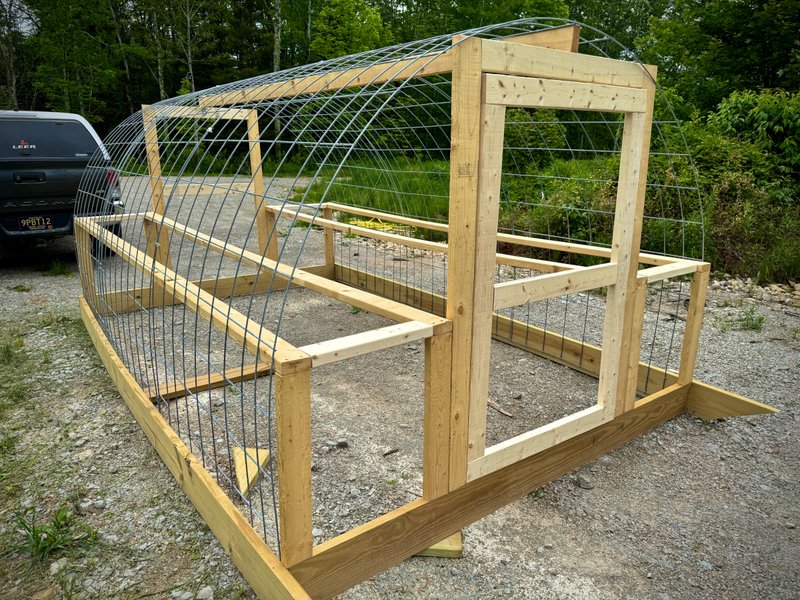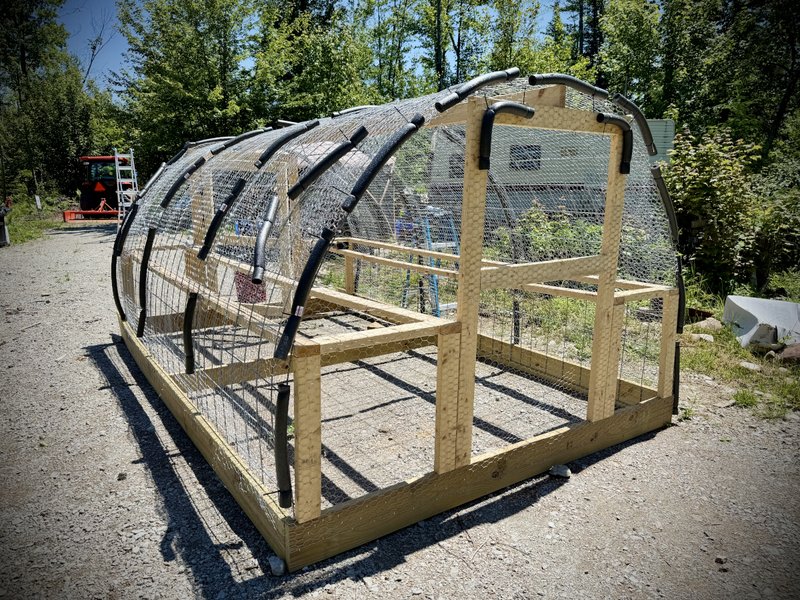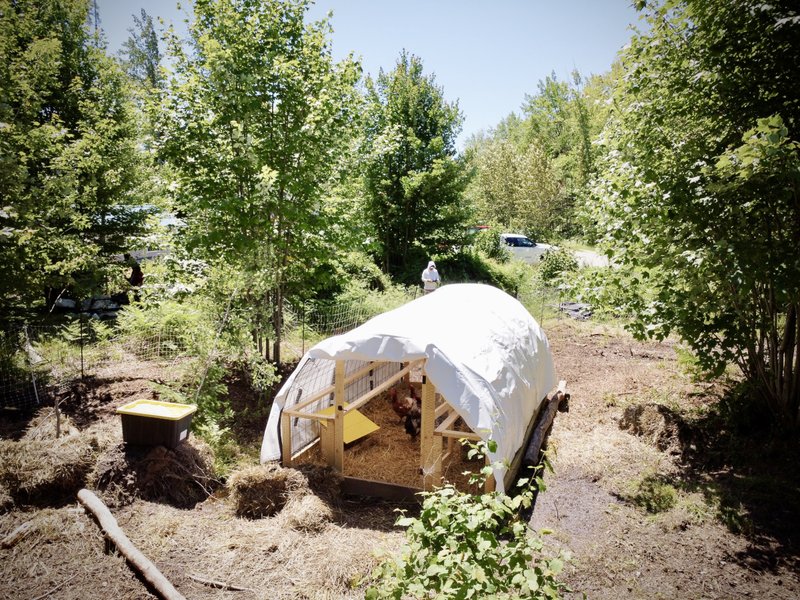Raising Chickens Again in Cornell Michigan






Returning to Poultry Keeping
Our Move from Oregon to Michigan
My wife Lou and I moved to the Upper Peninsula of Michigan after living in Oregon for almost 20 years. In Oregon, we spent 8.5 years on our previous property, raising a few hundred chickens, ducks, and turkeys. Moving to Michigan was a significant change, and we were eager to start our homesteading journey anew.
Acquiring Our New Flock
We were fortunate to acquire year-old chickens from friends we had worked with. These five hens and a rooster were a perfect addition to our new homestead, and we quickly set up their living space to ensure they felt at home.
The Cost and Quality of Chicken Feed
First Bag of Feed in Michigan
The first bag of chicken food we bought at Mel's in Escanaba, Michigan cost $12 for a 50-pound bag. This feed included everything needed for a "healthy diet", such as oyster shell for strong egg shells. However, the main ingredient was low-quality corn, which we soon realized was not ideal for our needs.
Allergic Reactions and Feed Adjustments
I quickly remembered that I have an “allergy” to eggs, which caused stomach cramps after eating conventional eggs. In Oregon, we used a no-corn, no-soy chicken feed based on peas. I acquired about 20 gallons of high-quality produce 5 days a week from my job. We also mixed our blend of feed, which included whole grains like oats, barley, and black oil sunflower seeds. This high-quality feed prevented "allergic reactions", and we plan to continue this practice in Michigan.
Regenerative Feeding Practices
Mixing Our Own Chicken Feed
Following our regenerative principles, we mix our chicken feed using oats, barley, and black oil sunflower seeds. This blend ensures our chickens receive a nutritious diet, leading to healthier eggs and hens. Additionally, we rotationally graze our birds when seasonally appropriate. The whole grains in their feed often get missed by the chickens and, given enough time in the season, these grains will sprout and grow, further enriching the soil and providing additional forage. This high-quality feed prevented any allergic reactions in Oregon, and we plan to continue this practice in Michigan.
Sprouting Grains for Winter Greens
To keep our chickens healthy throughout the winter, we plan to sprout grains. This method will provide fresh greens even during the colder months, ensuring our flock continues to thrive year-round.
Innovative Poultry Management Techniques
Mobile Chicken Housing
Our chickens live in an open-bottom chicken coop measuring 8’ x 12’. This design allows the coop to be moved around the property, giving our chickens access to fresh forage while they naturally till the soil and control pests. This mobile setup is not only beneficial for the chickens but also enhances soil health and overall land quality.
DIY Chicken Coop Construction
Building the Coop Ourselves
We built the chicken coop ourselves. The process involved constructing a sturdy frame, installing secure mesh, and adding essential features like roosting bars and nesting boxes. The result is a robust and functional coop that meets our chickens’ needs.
Winter Housing and Protection
When winter arrives, we transition the mobile coop into a static chicken run attached to a winter-insulated chicken coop. This setup keeps the chickens warm and safe from harsh weather conditions. Additionally, we use a 164-foot long and 4-foot tall electric poultry net from Premier1 to deter terrestrial predators, a technique that has served us well for over a decade.
Benefits of Quality Eggs
Personal Experience with Conventional vs. Rotationaly Graized Eggs
After we started eating eggs from our new flock, I initially experienced stomach cramps, a reminder of my reaction to eating conventional eggs. However, just as in Oregon, I found that eggs from well-managed chickens on a high-quality diet caused no issues. This reaffirmed our commitment to providing the best feed and care for our chickens.
Looking Forward
Plans for the Future
We have big plans for the future, including expanding our flock and further innovating our poultry management techniques. We aim to explore more regenerative practices and continue improving our homestead’s sustainability.
Encouragement for Aspiring Poultry Keepers
For anyone considering starting their flock, we offer this advice: focus on high-quality feed, ensure your chickens have a safe, comfortable environment that allows them to express their natural tendencies, and be prepared to adapt and learn. Raising chickens is a rewarding experience that offers both challenges and immense satisfaction.
